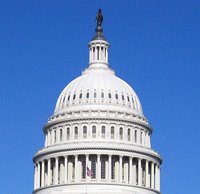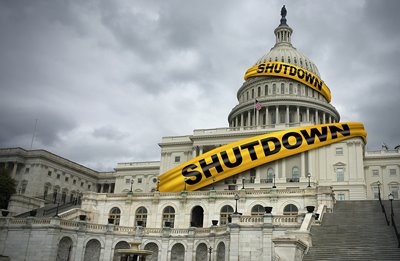 Both chambers finished up legislative business and left town for a much-needed break to focus on constituent outreach over the Thanksgiving Holiday. December marks the first time in approximately a decade without government funding deadlines.
Both chambers finished up legislative business and left town for a much-needed break to focus on constituent outreach over the Thanksgiving Holiday. December marks the first time in approximately a decade without government funding deadlines.
Before leaving, both chambers were able to pass a continuing resolution averting a federal government shutdown, and President Biden signed the bill into law. The stop gap measure (H.R. 6363) extends funding at current levels to Jan. 19, 2024, for some agencies and programs and to Feb. 2, 2024, for others and also included a one-year extension of the current Farm Bill. But it didn’t include additional funding for Ukraine, Israel and border security. The move gives both chambers more time to work through the annual appropriations process as well as consider the supplemental requests.
In SMACNA-related government news, SMACNA and its labor-management coalition allies are mobilizing to cut down a misguided and partisan House effort by a few dozen members to invoke the Congressional Review Act (CRA) to kill the new Davis-Bacon rules. This effort seeks to repeal the recently effective regulations before they impact the construction project bidding and improve long overdue public labor standards. The reformed and modernized Davis-Bacon rules took effect Oct. 23 after more than a year of hearings, drafting sessions and countless improvements and revisions.
 SMACNA expressed its strongest opposition to H.J. Res. 103 and enthusiastically endorsed the recently issued and long overdue final rules to modernize and simplify compliance with the Davis-Bacon Act. By supporting the Department of Labor’s Wage and Hour Division multi-year effort to produce comprehensively updated final rules, you are supporting construction workforce training quality, public project safety and productivity. Prevailing wage laws and registered apprenticeship standards are important to our thousands of public and private sector markets contracting firms and their hundreds of thousands of highly skilled construction trades employees.
SMACNA expressed its strongest opposition to H.J. Res. 103 and enthusiastically endorsed the recently issued and long overdue final rules to modernize and simplify compliance with the Davis-Bacon Act. By supporting the Department of Labor’s Wage and Hour Division multi-year effort to produce comprehensively updated final rules, you are supporting construction workforce training quality, public project safety and productivity. Prevailing wage laws and registered apprenticeship standards are important to our thousands of public and private sector markets contracting firms and their hundreds of thousands of highly skilled construction trades employees.
Also, the Inflation Reduction Act of 2022 (IRA), Public Law 117-169, not only introduced a range of new and enhanced clean energy-related tax credits, but also created two new ways for commercial, residential taxpayers and tax-exempt entities to monetize tax credits for direct payment to taxpayers on approved projects.
First, under Section 6417, tax-exempt and government entities (and for certain credits, taxable entities as well) can elect to receive tax credits as a fully refundable payment.
Second, under Section 6418, non-tax-exempt taxpayers can elect to transfer all or a portion of tax credits to unrelated parties for cash.
SMACNA fully supports the IRA provisions enabling the Direct Pay (Section 6417) and Transferability Provisions (Section 6418). Before the IRA, it was not possible to monetize federal tax credits generated by renewable energy projects outside of tax equity financing structures. The intent behind the transferability and direct pay provisions is that they will allow for new investors to enter the market. This will allow for more stakeholders to use the credits to finance a greater variety of facilities more quickly and more affordably.
SMACNA supports an expansive definition of “applicable entity,” including both private non-profit entities and public entities, including school districts, public utility districts and special purpose entities established by governments (such as joint action agencies, economic development corporations and joint powers authorities).
SMACNA endorses that the applicable tax credit and any eligible bonus credit amounts (e.g., for prevailing wage and apprenticeship, domestic content, energy communities and low-income communities) are eligible for direct payment.
SMACNA argues that the final rule should make clear that there will be no waiver for labor standards, including prevailing wage and apprenticeship standards and that “bonus credit amounts” should only be available if the transferor complies with the applicable labor standards, and failing to comply with labor standards should result in “recapture” of “bonus credit amounts.”